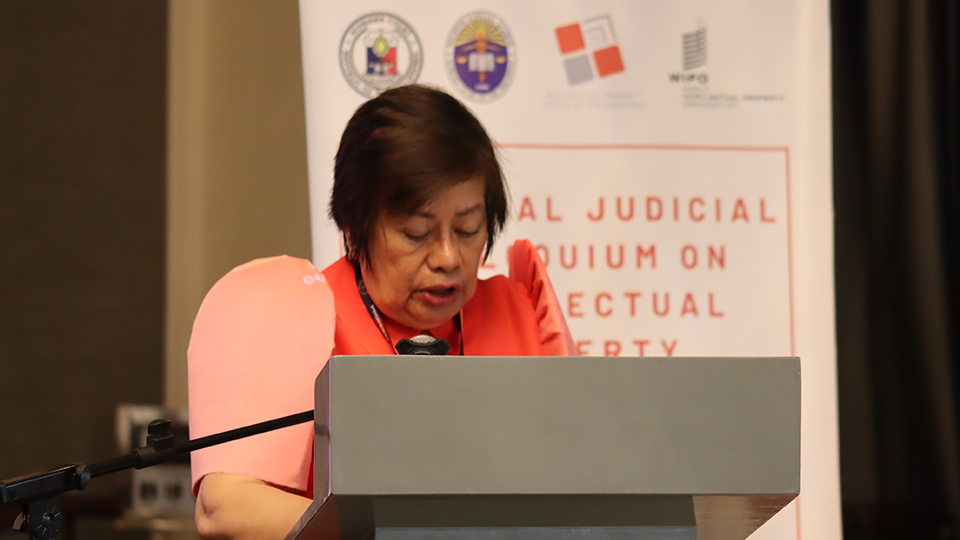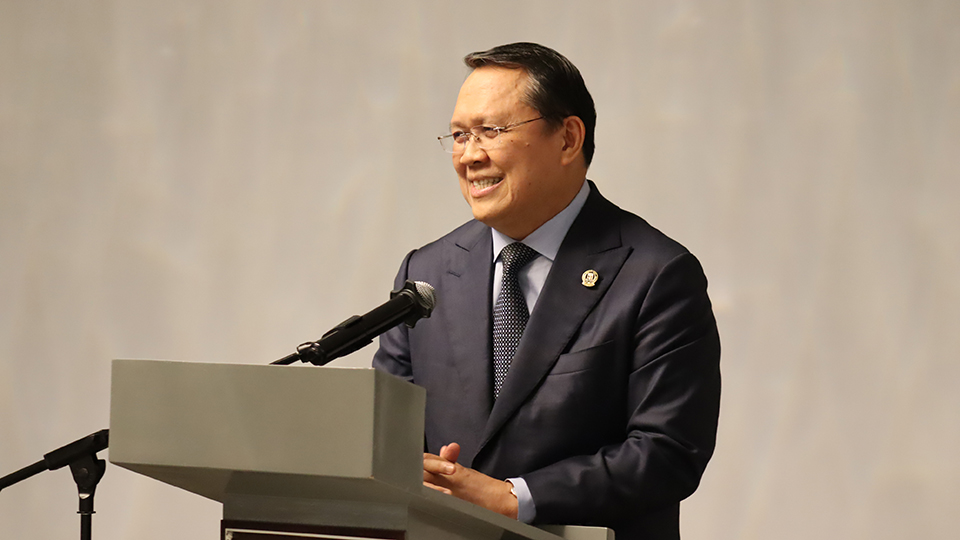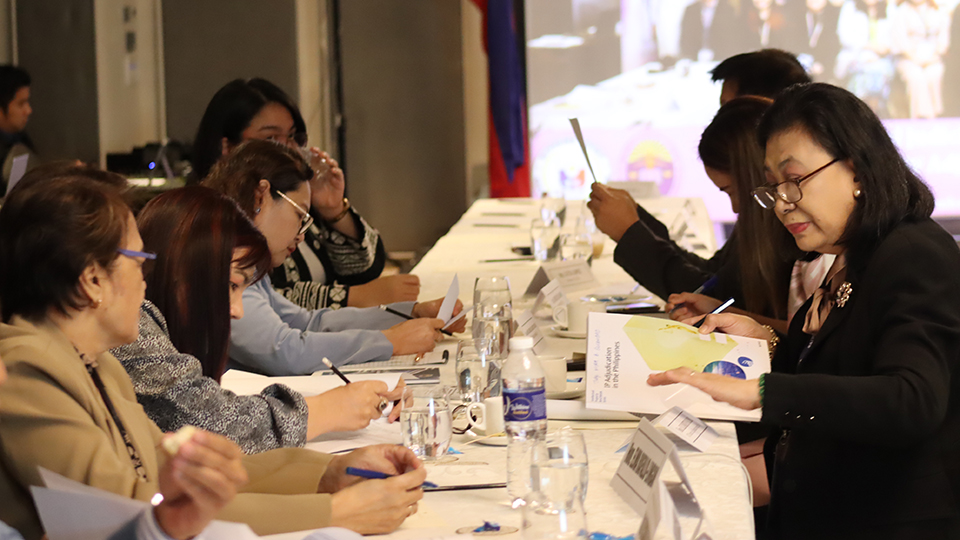Philippines Takes Landmark Step in Strengthening IP Adjudication
11 de diciembre de 2024
In a significant step towards enhancing intellectual property (IP) protection in the Philippines, the Supreme Court of the Philippines, the Philippine Judicial Academy (PHILJA), the Supreme Court Sub-Committee on Commercial Courts, the Intellectual Property Office of the Philippines (IPOPHL) and the World Intellectual Property Organization (WIPO) collaborated to conduct a Judicial Colloquium in Manila, on December 4 and 5, 2024.
The courts in the Philippines have seen a significant uptick in IP cases, including by the Supreme Court, and the judges are increasingly engaging with IP disputes and recognizing their far-reaching implications for the socio-economic landscape and innovation ecosystem. The focus on judicial training in IP law is expected to not only improve the quality of legal decisions but also contribute to creating a more robust and predictable legal environment for innovators and businesses alike.
PHILJA Chancellor and retired Supreme Court Associate Justice Rosmari D. Carandang highlighted that “In an age where technology is advancing at an unprecedented pace - transforming industries, reshaping economies, and connecting societies in ways previously unimaginable - the role of the judiciary in ensuring the fair and effective adjudication of IP disputes is more critical than ever.” She also emphasized the crucial importance of judicial education in adapting to change, explaining that as the law continually evolves, judges must evolve alongside. She noted that the Colloquium represents a collective commitment to staying at the forefront of legal advancements, mastering the intricacies of intellectual property law, and ensuring that courts remain pillars of justice and fairness in an increasingly complex world.

Supreme Court Associate Justice Japar B. Dimaampao also emphasized the role of the judiciary, underscoring in his closing of the Colloquium that “Our courts, particularly the special commercial courts, are at the forefront of adjudicating complex intellectual property issues and disputes. Indeed, the judgments rendered by the courts have far-reaching repercussions not only between the private parties involved in the cases, but also in cultivating a broader intellectual property landscape for the economy.”

Judicial Colloquium Highlights
The Colloquium brought together judges from regional trial courts in the national capital judicial region, as well as attorneys of IPOPHL, with participants attending both in person and online. Justice Maria Rowena Modesto-San Pedro Fields in collaboration with WIPO, curated the program, which featured contributions from two international and nine national experts. The Colloquium was preceded by a tailored Distance Learning Course on IP for Judges, offered by the WIPO Academy.
The Colloquium’s interactive approach allowed judges to engage in group discussions, analyze hypothetical IP scenarios, and apply their knowledge to realistic situations. The practical training placed a strong emphasis on judicial procedures specific to IP cases, and the attendees gained hands-on experience in trademark, patent, and copyright disputes. The Colloquium also provided active skill development opportunities, enabling judges to practice and refine their IP adjudication techniques. This practical training enabled participants to exchange views on how to strengthen the judicial administration of IP disputes in the Philippines, fostering a collaborative environment for improving the country’s IP protection framework.

International Expertise
Justice Stephen Burley, Federal Court of Australia, and Judge Kim Young Gi, Intellectual Property High Court of Korea, served as the international experts and enriched the judiciary’s understanding of global IP challenges. Justice Burley is the series editor of the WIPO Intellectual Property Benchbook series, a set of practical manuals on IP law and procedure to support judges in adjudicating IP cases appearing before them in their own courts, as well as for readers interested in learning about judicial adjudication of IP disputes across jurisdictions. He commended the Colloquium as having showcased the potential of the Benchbook. He noted that “Since the launch of the Philippines Benchbook, with the great energy of the Philippines Supreme Court and the primary author of the Philippines edition, Justice Maria Rowena Modesto-San Pedro, the Benchbook has provided the basis for educational materials for judges about the adjudication of IP rights and also a platform for further judicial training. Judges at the Colloquium mentioned that they keep the Benchbook by their side when they are deciding such cases. It was wonderful to hear that!”
Ongoing Collaboration
The Colloquium represents a significant milestone in the ongoing collaboration between WIPO and the judiciary of the Philippines to strengthen IP protection in the country. This partnership has yielded several notable achievements over the years, facilitated by the leadership role of Justice San Pedro, including during her time as a member of the WIPO Advisory Board of Judges in 2018 and 2019. The collaboration saw the participation of the Philippines, facilitated by IPOPHL, in WIPO Lex-Judgments, a curated collection of leading IP judgments that has enhanced the understanding of IP jurisprudence across the region. A major highlight was the launch of the IP Benchbook – IP Adjudication in the Philippines in August 2024, providing an invaluable resource for judges handling IP cases. Finally, the partnership has fostered robust engagement from Philippines’ judiciary in WIPO activities, with numerous judges, including Supreme Court Associate Justices, participating in WIPO activities and workshops. The impact of this collaboration is evident in the impressive numbers: to date, close to 200 judges and judicial officers have participated in activities offered by the WIPO Judicial Institute, with many attending multiple events, demonstrating a sustained commitment to enhancing their IP adjudication skills.
Future Initiatives
Building on this progress, WIPO and the Philippines judiciary have committed to further strengthening IP protection in the country. Plans for 2025 include an enhanced customization of the Distance Learning Course on IP for Judges, continuing the momentum towards sustainable development of judicial expertise in IP and serving as an example for other countries seeking to enhance judiciary’s capacities in IP adjudication.
International Support
The Colloquium was organized with support from the WIPO-Australia Funds-in-Trust Program, funded by the Australian Department of Foreign Affairs and Trade.
Read more about the Colloquium from the Supreme Court of the Philippines
About the WIPO Judicial Institute and Capacity Building for Judges
The WIPO Judicial Institute collaborates with member states to empower their judiciaries to fulfill their role in ensuring that IP, innovation and creative ecosystems are balanced and effective. As part of this work, WIPO offers a holistic suite of capacity building activities that contribute to building Continuing Judicial Education (CJE) on IP.
CJE programs are designed to enhance the capacity of the member state judicial authorities to deliver self-sustaining education programs on IP. The goal is for judges to develop their capacity and skills to adjudicate IP disputes efficiently and in accordance with national strategies and priorities. Ultimately, the program will enable new judges to gain an initial understanding of the complex field of IP and allow experienced judges to learn about new IP statutes and developments.
To learn more about this support contact the WIPO Judicial Institute at judicial.institute@wipo.int